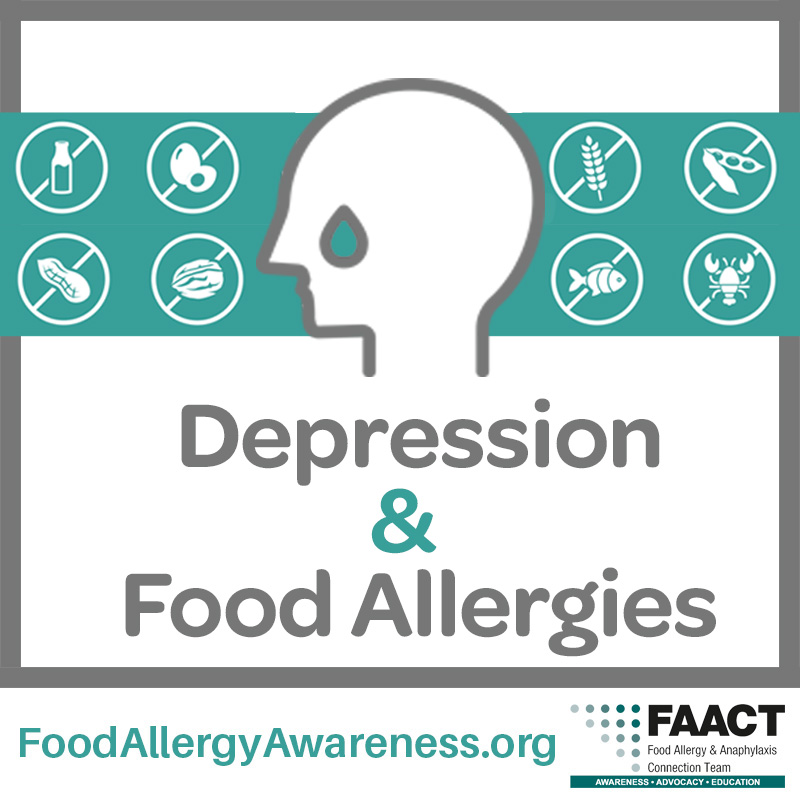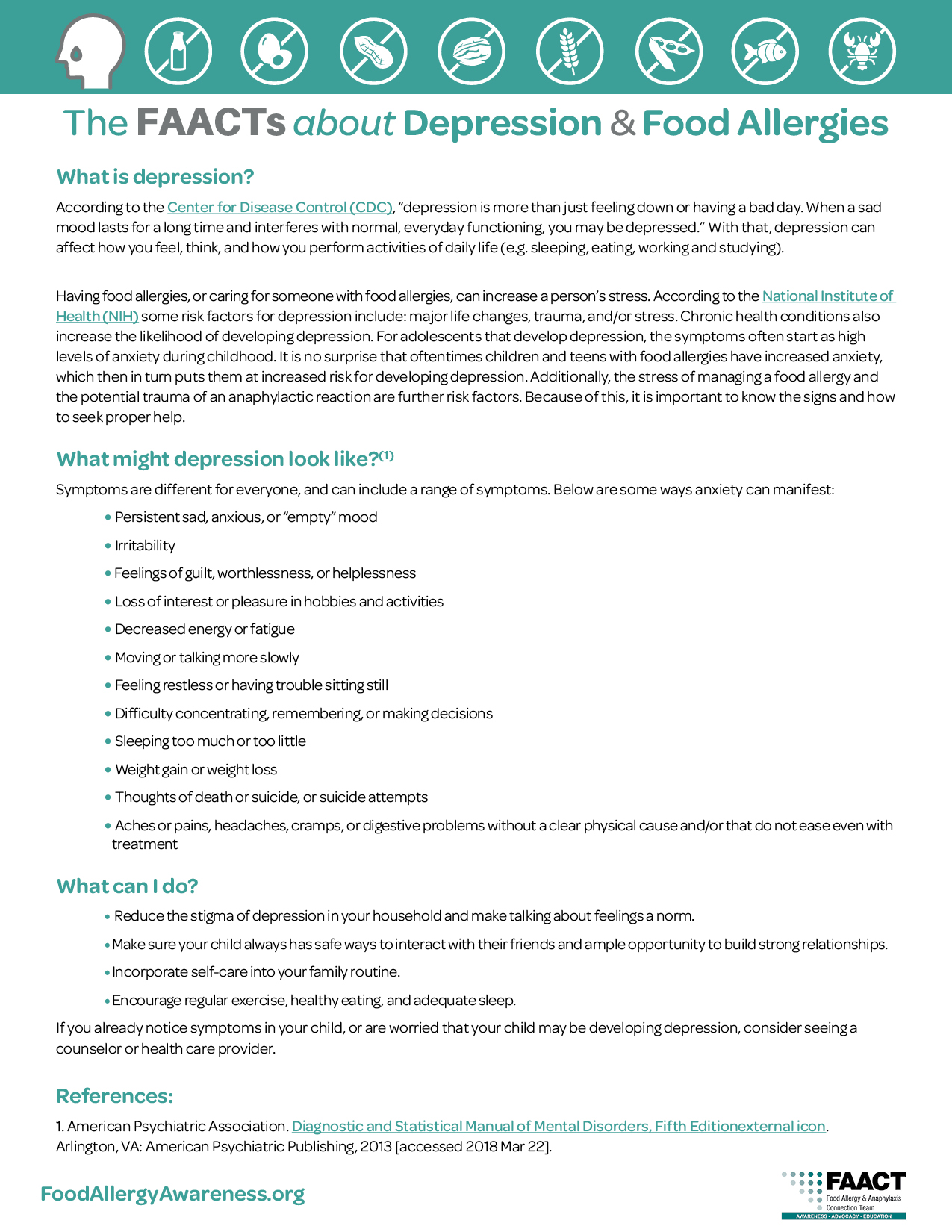Behavioral Health
Anxiety and Depression
Back to Category View
The FAACTs about Depression and Food Allergies
What is depression?
According to the Center for Disease Control (CDC), “depression is more than just feeling down or having a bad day. When a sad mood lasts for a long time and interferes with normal, everyday functioning, you may be depressed.” With that, depression can affect how you feel, think, and how you perform activities of daily life (e.g. sleeping, eating, working and studying).
Having food allergies, or caring for someone with food allergies, can increase a person’s stress. According to the National Institute of Health (NIH) some risk factors for depression include: major life changes, trauma, and/or stress. Chronic health conditions also increase the likelihood of developing depression. For adolescents that develop depression, the symptoms often start as high levels of anxiety during childhood. It is no surprise that oftentimes children and teens with food allergies have increased anxiety, which then in turn puts them at increased risk for developing depression. Additionally, the stress of managing a food allergy and the potential trauma of an anaphylactic reaction are further risk factors. Because of this, it is important to know the signs and how to seek proper help.
What might depression look like?(1)
- Persistent sad, anxious, or “empty” mood.
- Irritability.
- Feelings of guilt, worthlessness, or helplessness.
- Loss of interest or pleasure in hobbies and activities.
- Decreased energy or fatigue.
- Moving or talking more slowly.
- Feeling restless or having trouble sitting still.
- Difficulty concentrating, remembering, or making decisions.
- Sleeping too much or too little.
- Weight gain or weight loss.
- Thoughts of death or suicide, or suicide attempts.
- Aches or pains, headaches, cramps, or digestive problems without a clear physical cause and/or that do not ease even with treatment.
What can I do?
- Reduce the stigma of depression in your household and make talking about feelings a norm.
- Make sure your child always has safe ways to interact with their friends and ample opportunity to build strong relationships.
- Incorporate self-care into your family routine.
- Encourage regular exercise, healthy eating, and adequate sleep
If you already notice symptoms in your child, or are worried that your child may be developing depression, consider seeing a counselor or health care provider.
References:
- American Psychiatric Association. Diagnostic and Statistical Manual of Mental Disorders, Fifth Editionexternal icon. Arlington, VA: American Psychiatric Publishing, 2013 [accessed 2018 Mar 22].
Download FAACTs about Depression and Food Allergies handout.
